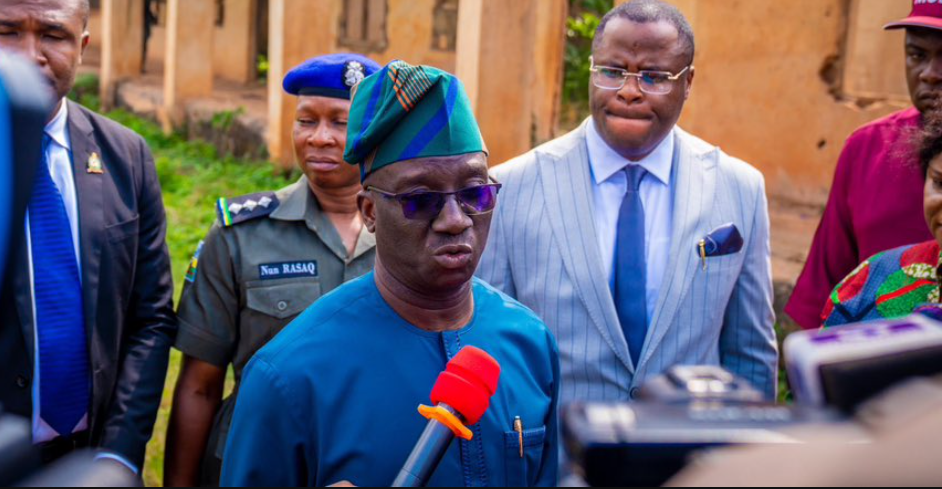The inauguration of a new governing council for Ambrose Alli University (AAU), Ekpoma, marks a pivotal moment in the institution’s history and signifies the Edo State government’s commitment to revitalizing education within the state. Governor Godwin Obaseki’s charge to the council underscores the urgency and importance of this task, emphasizing the university’s historical significance as a breeding ground for some of Nigeria’s most brilliant minds. The governor’s vision is clear: to restore AAU to its former glory and re-establish it as a center of academic excellence, not just within Nigeria but on a broader, potentially global, scale. This revitalization is not merely a policy objective; it’s a strategic imperative for the overall development of Edo State, recognizing the intrinsic link between a robust educational system and societal progress.
The governor’s strategic approach to revitalizing AAU involves a multi-pronged strategy. First, he has assembled a high-powered governing council, comprised of distinguished individuals with proven leadership capabilities and a deep understanding of the challenges facing the education sector. This carefully selected team, led by Chief Dan Orbih, brings together a wealth of experience from various fields, including academia, administration, and public service. The council’s diversity is a strength, enabling it to approach the task of university reform from multiple perspectives and develop comprehensive solutions. Second, the governor has demonstrated a tangible commitment to supporting the university financially. Increasing the monthly subvention from a meager N41 million to a substantial N500 million represents a significant investment in the institution’s future. This increased funding will provide the necessary resources to address pressing infrastructural needs, enhance academic programs, and attract and retain top-tier faculty.
Furthermore, the governor’s plan extends beyond mere financial support. He has initiated special interventions aimed at addressing the specific challenges faced by both students and staff. This targeted approach demonstrates a nuanced understanding of the complexities within the university ecosystem. By listening to the concerns of stakeholders and implementing tailored solutions, the government aims to create a more conducive environment for learning and research. The resolution of the critical challenges faced by over 100 medical students serves as a testament to this commitment. The governor’s proactive intervention not only alleviated the immediate difficulties faced by these students but also sent a powerful message of support to the entire university community.
The appointment of Chief Dan Orbih as chairman of the governing council is particularly noteworthy. Orbih’s acceptance of this responsibility reflects his dedication to public service and his belief in the transformative power of education. His expression of gratitude to the governor and his acknowledgment of the steps already taken to revitalize AAU underscore the collaborative spirit that underpins this initiative. The shared vision between the government and the governing council is crucial for the success of this ambitious undertaking. Orbih’s confidence in the university’s resurgence is not merely optimistic rhetoric but a reflection of the tangible progress already made and the potential for even greater achievements in the future. The collective effort, driven by the governor’s leadership and the council’s expertise, is poised to transform AAU into a beacon of academic excellence once again.
Beyond the immediate focus on AAU, Governor Obaseki’s broader vision encompasses the overall development of Edo State. His commitment to education is intrinsically linked to his commitment to economic growth, social progress, and security. By investing in education, the governor is investing in the future of the state, nurturing the human capital necessary for sustainable development. The inauguration of the new governing council represents a significant step towards realizing this vision. It signifies a renewed focus on quality education, a commitment to providing opportunities for the youth, and a recognition of the transformative power of knowledge. The revitalization of AAU is not just about rebuilding a university; it’s about building a brighter future for Edo State.
Finally, Governor Obaseki’s meeting with the newly appointed Commissioner of Police, Betty Otimenyin, highlights another crucial aspect of his leadership: his commitment to ensuring the safety and security of the state’s citizens. Recognizing the vital role of security in creating an environment conducive to development, the governor has prioritized the fight against crime and criminality. The provision of vehicles to the police force is a tangible demonstration of this commitment, providing the necessary resources for effective law enforcement. The governor’s confidence in Otimenyin’s leadership underscores the importance of collaboration between government and law enforcement agencies in achieving a shared goal of a secure and prosperous Edo State. This multifaceted approach, encompassing education, economic development, and security, demonstrates Governor Obaseki’s holistic vision for the future of Edo State.


